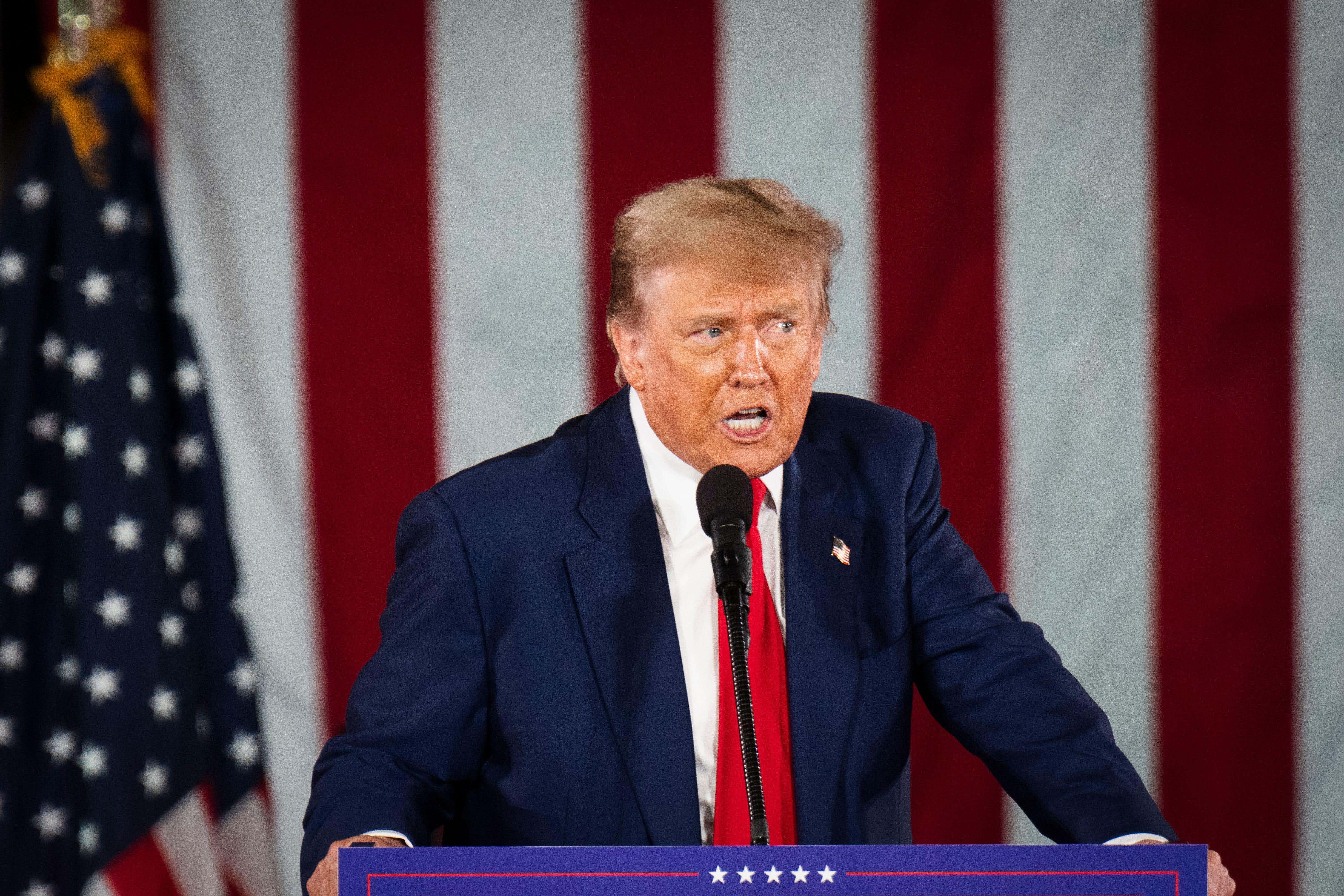Trump tariff hikes could knock UK GDP, says CEBR
Analysts at the think tank estimate that Mr Trump’s tariff plans could reduce UK gross domestic product (GDP) by 0.9% by the end of his term.

Your support helps us to tell the story
From reproductive rights to climate change to Big Tech, The Independent is on the ground when the story is developing. Whether it's investigating the financials of Elon Musk's pro-Trump PAC or producing our latest documentary, 'The A Word', which shines a light on the American women fighting for reproductive rights, we know how important it is to parse out the facts from the messaging.
At such a critical moment in US history, we need reporters on the ground. Your donation allows us to keep sending journalists to speak to both sides of the story.
The Independent is trusted by Americans across the entire political spectrum. And unlike many other quality news outlets, we choose not to lock Americans out of our reporting and analysis with paywalls. We believe quality journalism should be available to everyone, paid for by those who can afford it.
Your support makes all the difference.US President-elect Donald Trump could wipe off nearly 1% from the size of the UK economy if he puts in place tariffs on imports to the US as planned, experts have warned.
Economists at the Centre for Economics and Business Research (CEBR) said a 20% tariff on all imports and a move to raise tariffs on Chinese goods to 60% could reduce UK gross domestic product (GDP) by 0.9% by the end of Mr Trump’s administration.
It also cautioned that there is a risk that energy prices could be pushed even higher if countries hit back at US tariff hikes by taking retaliatory action.
The major sticking point to a deal remains food standards, and tariffs may be used to pressure the UK to accept US demands in this regard
“The re-election of Donald Trump could reshape global dynamics, particularly in trade, energy, and environmental policy,” according to the CEBR.
The think tank said that during Mr Trump’s first term as president, oil prices surged to 71.34 dollars a barrel at one stage in 2018 – more than doubling since the start of his administration in 2017 – as buyers were reluctant to buy US energy imports.
But it said big increases in oil prices should be less likely this time due to “shifts in global energy dynamics”.
The CEBR said: “China, once a major importer of US energy commodities, now sources discounted supplies from Russia, while its domestic economic slowdown has dampened its energy demand.
“OPEC (the Organisation of the Petroleum Exporting Countries) also has spare production capacity, given it is currently implementing an output cut of 2.2 million barrels a day to support prices.”
It believes that a Free Trade Agreement could help spare the UK from extra tariffs on British goods, but added there are still hurdles to overcome in securing such a deal.
“Unfortunately, the major sticking point to a deal remains food standards, and tariffs may be used to pressure the UK to accept US demands in this regard,” according to the CEBR.
There have been mounting concerns over the impact of Mr Trump’s tariff plans on the UK economy and what it could also mean for inflation.
Financial markets have rowed back their expectations for UK interest rate cuts in recent weeks in light of Mr Trump’s victory and recent Budget measures – both of which are seen as being inflationary.
But the CEBR said there may be “opportunities” for the UK from Mr Trump’s policy plans.
Britain could “bolster its position as a leader in green technology by capitalising on global shifts toward clean energy investment and the likely lower prioritisation of this area amongst the Trump administration”, it said.